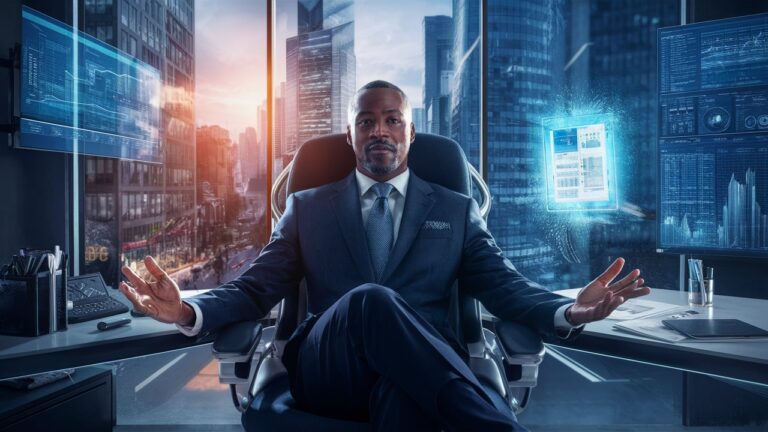Introduction
In the ever-evolving landscape of global business, few leaders stand out as catalysts for transformative change. Among them is CEO Riddick, a name synonymous with innovation, resilience, and strategic foresight. Over the past decade, Riddick has redefined what it means to lead with purpose, merging cutting-edge technology with a human-centric approach to drive organizational success. This article delves into the core principles of Riddick’s leadership style, explores his groundbreaking strategies, and unpacks the philosophies that have cemented his reputation as a trailblazer. Whether you’re an aspiring entrepreneur or a seasoned executive, there’s much to learn from the man who turned challenges into opportunities and vision into reality.
1. The Strategic Mindset of CEO Riddick
At the heart of Riddick’s success lies a relentless focus on long-term strategic planning. Unlike leaders who prioritize short-term gains, Riddick advocates for a balanced approach that aligns immediate actions with future objectives. His methodology involves rigorous market analysis, scenario planning, and adaptive decision-making. For instance, during the global supply chain crisis of 2020, Riddick spearheaded a pivot to regionalized manufacturing hubs, reducing dependency on overseas suppliers. This move not only stabilized operations but also positioned his company as a leader in supply chain resilience. His mantra, “Plan for the worst, innovate for the best,” underscores the importance of agility in an unpredictable world.
2. Innovative Approaches to Market Disruption
Riddick’s tenure has been marked by a willingness to embrace disruptive technologies and redefine industry standards. Under his leadership, the company launched an AI-driven customer engagement platform that leveraged machine learning to predict consumer behavior with 90% accuracy. This innovation not only boosted sales but also set a new benchmark for personalized marketing. Riddick often emphasizes that disruption isn’t about reinventing the wheel—it’s about identifying gaps in existing systems and filling them with scalable solutions. His ability to anticipate trends, such as the rise of blockchain for secure transactions, has kept his organization ahead of competitors.

3. Leadership Philosophy: Empowerment Over Hierarchy
A cornerstone of Riddick’s leadership is his commitment to employee empowerment. He dismantled traditional hierarchical structures in favor of flat organizational models, fostering a culture where ideas flow freely across all levels. By instituting “innovation incubators” and granting teams autonomy over projects, Riddick unlocked unprecedented creativity. One notable example is the development of a carbon-neutral packaging solution by a junior team—a project that began as a grassroots initiative and later became a industry-wide standard. “Great ideas don’t have job titles,” Riddick often states, highlighting his belief in collective intelligence.
4. Sustainability and Corporate Responsibility
Riddick’s vision extends beyond profit margins to environmental and social stewardship. He pioneered a “triple bottom line” framework, measuring success through people, planet, and profit. Initiatives like transitioning to 100% renewable energy by 2025 and funding STEM education programs in underserved communities reflect this ethos. Critics initially questioned the financial viability of these efforts, but Riddick’s data-driven approach proved skeptics wrong: sustainable practices reduced operational costs by 18% while enhancing brand loyalty. His advocacy for ethical AI and fair labor practices further cements his role as a leader in corporate responsibility.
5. Navigating Challenges with Emotional Intelligence
No leader is immune to setbacks, and Riddick’s journey has seen its share of crises—from economic downturns to cybersecurity breaches. What sets him apart is his emphasis on emotional intelligence (EQ) in crisis management. During a ransomware attack that threatened sensitive data, Riddick prioritized transparent communication with stakeholders, ensuring trust remained intact. He also implemented mental health support programs for employees, recognizing that resilience starts with well-being. “Leadership isn’t about having all the answers,” he remarks. “It’s about listening, adapting, and guiding with empathy.”
Conclusion
CEO Riddick’s legacy is a testament to the power of visionary leadership. By blending strategic acumen with a deep commitment to people and the planet, he has redefined what it means to lead in the 21st century. His story offers invaluable lessons: embrace change, empower your team, and never lose sight of your broader impact. As industries continue to evolve, Riddick’s principles will undoubtedly remain a blueprint for sustainable success.
Frequently Asked Questions (FAQs)
Q1: What industries has CEO Riddick influenced?
A1: Riddick’s expertise spans technology, manufacturing, and renewable energy. His strategies have reshaped supply chain logistics, AI integration, and corporate sustainability practices across sectors.
Q2: How does Riddick balance innovation with risk management?
A2: By employing predictive analytics and fostering a culture where calculated risks are encouraged. He often uses pilot programs to test ideas before full-scale implementation.
Q3: What advice does Riddick offer to aspiring leaders?
A3: “Stay curious. Build diverse teams. And remember, leadership is about serving others—not just directing them.”
Q4: How has Riddick addressed workplace diversity?
A4: He instituted mandatory bias training, created mentorship programs for underrepresented groups, and tied executive bonuses to diversity metric achievements.
Q5: What’s next for CEO Riddick?
A5: Expanding into emerging markets and advocating for global policies on ethical AI and climate action. His next venture focuses on democratizing access to green tech.
This comprehensive exploration of CEO Riddick’s leadership offers actionable insights for anyone looking to drive meaningful change in their organization.
